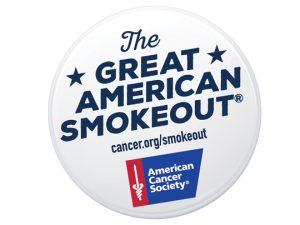Great American Smokeout: Advancing Tobacco Cessation and Population Health

Key Facts:
- Roughly 28 million U.S. adults still smoke cigarettes; smoking accounts for about 480,000 deaths per year.
- Two out of three adult smokers want to quit, yet fewer than one in 10 succeed annually without assistance.
- Use of evidence-based counseling and FDA-approved medications can double or triple quit success rates.
- Smoking-related illness costs the nation nearly $240 billion in healthcare spending and productivity losses each year.
Editor's Note
This article is part of the BHM Healthcare Awareness Series, designed to provide quick, ready-to-use content and links to official resources for internal staff communications, patient education, and social media.
Feel free to copy, adapt, and share.
Observation Date
Third Thursday in November
Why it Matters
Tobacco use remains the leading preventable cause of death in the United States, linked to cancer, heart disease, stroke, and chronic lung conditions. Coordinated cessation initiatives reduce healthcare costs, improve workforce productivity, and support long-term community health, making the Great American Smokeout a strategic moment for healthcare organizations to boost quit-support efforts.
Quick Actions for Your Organization
For Leadership
Expand benefit coverage to include all seven FDA-approved cessation medications and individual/group counseling with no cost sharing.
Embed tobacco-free campus policies and link performance incentives to cessation measure (e.g., HEDIS “Tobacco Use: Cessation Intervention”).
For Implementation Teams
Push EHR prompts for tobacco-use assessment and automatic e-referral to quitlines or onsite programs.
Leverage American Cancer Society (ACS) Smokeout posters, social graphics, and email templates across internal channels.
Host virtual or in-person quit-coaching sessions and distribute free nicotine-replacement starter kits where permitted.
Resources
Ready-to-Use Assets
The following links provide resources & information for creating internal or external campaigns to support or promote this healthcare observance. Please vet these resources for alignment with your organization.
Talking Points
Copy & Paste Friendly
“Quitting smoking starts with a single day. Join the Great American Smokeout and take the first step toward better health.”
“Combining counseling with FDA-approved quit medicines can triple your chances of success.”
“Every employee who quits saves an average of $5,800 per year in healthcare and productivity costs.”
Disclaimer: Please verify all information, usage rights, and related guidelines with the official observance organizers and your organization’s policies to ensure proper alignment.
Frequently Asked Questions (FAQ)
Q1. What is the Great American Smokeout and why is it important?
The Great American Smokeout is an annual American Cancer Society event on the third Thursday of November that encourages smokers to make a quit plan or quit for the day, providing resources and support to improve tobacco cessation success.
Q2. What are the best evidence-based ways to quit smoking?
The best evidence-based ways to quit smoking include behavioral counseling (individual, group, or phone), FDA-approved nicotine replacement therapy or prescription medications, and ongoing follow-up through quitlines or digital coaching programs.
Q3. How can healthcare organizations increase tobacco cessation rates among patients and employees?
Healthcare organizations can increase tobacco cessation rates by implementing opt-out quitline referrals in EHRs, covering cessation medications without copays, training clinicians in the 5As (Ask, Advise, Assess, Assist, Arrange), and promoting quit resources during events like the Great American Smokeout.
Partner with BHM Healthcare Solutions
With over 20 years in the industry, BHM Healthcare Solutions is committed to providing consulting and review services that help streamline clinical, financial, and operational processes to improve care delivery and organizational performance.
We bring the expertise, strategy, and capacity that healthcare organizations need to navigate today’s challenges – so they can focus on helping others.
Are you ready to make the shift to a more effective process?

